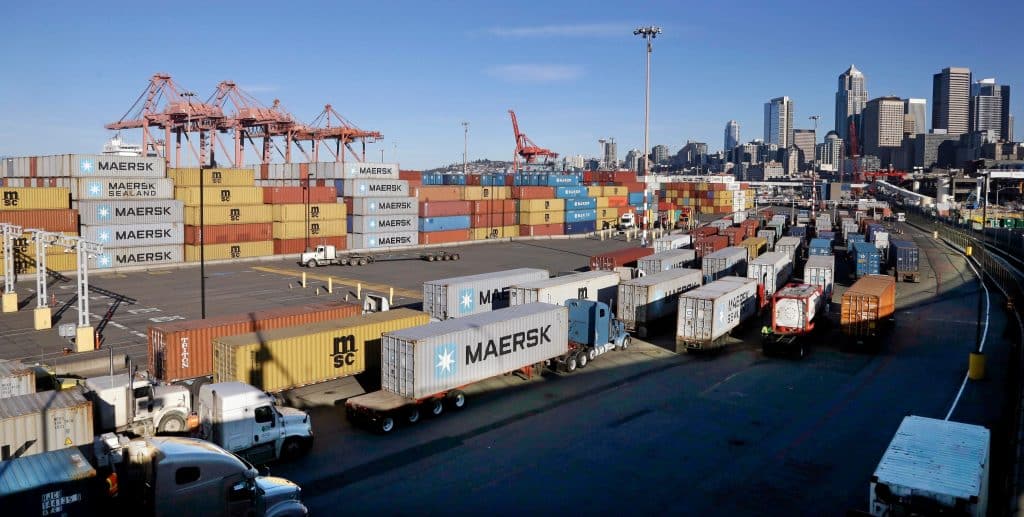Tens of Thousands of Dockworkers Begin Indefinite Strike Across Major US Ports: A Comprehensive Breakdown
Major Food Supply Shortages & Greater Depression on The Horizon as Tens of Thousands of U.S. Dockworkers Strike
[playht_player width=”100%” height=”90px” voice=”Salli”]
by Morris Wambua | Staff Writer | Eternal Affairs Media
A massive and indefinite strike has erupted across crucial U.S. ports, with tens of thousands of dockworkers from the International Longshoremen’s Association (ILA) walking off the job. This unprecedented action, spanning 14 major ports along the East and Gulf coasts from Maine to Texas, has essentially brought container traffic to a grinding halt. It’s the first significant port shutdown in nearly half a century, and it arrives at a critical moment for the U.S. economy—with the holiday shopping season looming and the presidential election drawing near. The strike is an isolated labor dispute and a flashpoint in ongoing national conversations about workers’ rights, economic resilience, and political responsibility.
Although President Joe Biden has the legal authority to suspend the strike for up to 80 days to allow for further negotiations, the White House has made it clear that it doesn’t intend to intervene at this early stage. The implications of this strike are broad and far-reaching, affecting consumers, businesses, and the political landscape alike.
This article delves into the strike’s root causes, its economic and political consequences, and what it means for workers and the broader U.S. economy.
What’s Behind the Strike?
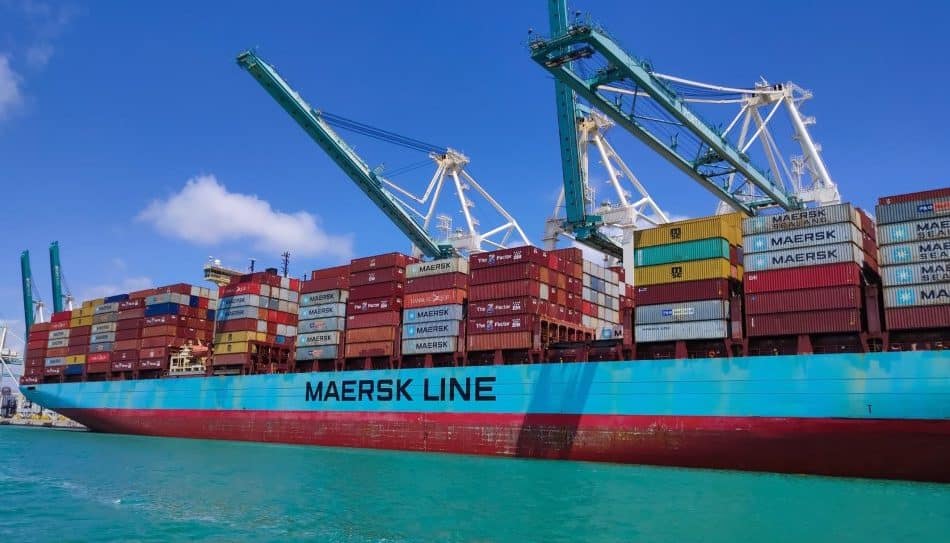
At the heart of this massive labor action are stalled negotiations over a six-year master contract that directly affects the livelihoods of approximately 25,000 dockworkers. These workers, employed in critical container and roll-on/roll-off operations at major ports, saw their contracts expire on Monday. Since then, negotiations between the U.S. Maritime Alliance (USMX), which represents shipping companies, port authorities, and terminal operators, and the ILA have ground to a standstill.
The USMX, desperate to avoid a prolonged strike, has offered concessions that include a near 50% wage increase, significantly higher pension contributions, and improved healthcare benefits. Yet, despite these offers, ILA President Harold Daggett remains unyielding. He is pushing for even more substantial pay raises and has repeatedly voiced concerns about automation’s looming threat to jobs. This fear resonates with many in the workforce as industries nationwide grapple with the rise of technology. Under the ILA’s proposal, wages would increase by $5 per hour yearly over the six-year contract, equating to a 10% annual raise.
While the USMX claims it is open to continued negotiations, it has accused the union of stonewalling, even going so far as to file a complaint with labor regulators to compel the ILA to return to the bargaining table. For its part, the ILA has countered that the concessions offered by USMX, though notable, fall short of addressing workers’ concerns about future job security, especially in light of soaring inflation and the record profits shipping companies have enjoyed since the pandemic.
The Historical Context of Dockworker Strikes
To understand the magnitude of this strike, placing it within the historical context of labor relations at U.S. ports is helpful. Strikes by dockworkers, particularly those represented by the ILA, have long been symbolic of broader struggles within the American labor movement. The most famous example is the 1950s-era labor battle immortalized in On the Waterfront. These strikes have often revolved around concerns that resonate far beyond the ports: fair wages, job security, and equitable treatment of workers.
However, the modern dynamics are somewhat different. Automation and global supply chains have changed the landscape in ways unimaginable in past decades. Today, dockworkers are fighting not just for wage increases but also to safeguard their future in an industry where robots, artificial intelligence, and self-operating machinery threaten to make jobs obsolete.
This strike is not just about immediate pay raises—it’s about the long-term survival of traditional dockworker roles. The outcome could set a precedent for the shipping industry and many other sectors facing similar automation threats.
The Strike’s Immediate Economic Impact
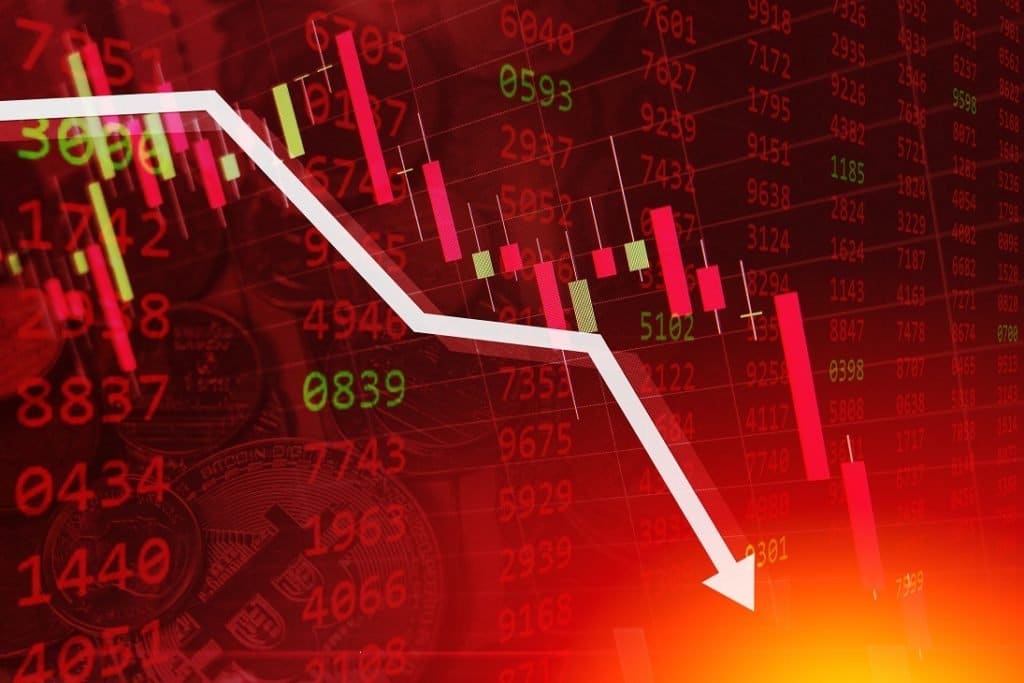
As the strike stretches, consumers and businesses could start feeling its effects within weeks, especially regarding time-sensitive goods like food and seasonal items. The ports affected by the strike handle more than half of the nation’s imports and around 14% of its agricultural exports, making the potential for economic disruption severe.
Among the most at-risk products are perishable goods like bananas, chocolate, and tobacco and consumer staples like clothing and footwear. The Port of Baltimore, in particular, plays a crucial role in importing European cars, and any delays here could affect the auto industry, including dealerships and service centers.

Many businesses anticipated the strike and scrambled to move shipments ahead of the potential disruption, hoping to stave off inventory shortages. However, even with these preemptive efforts, gauging how much stockpiling will soften the blow is difficult. Seth Harris, a labor expert at Northeastern University, has pointed out that the strike’s actual economic impact could take weeks or even months to become fully apparent. Should the strike drag on, prices for essential goods may rise, and shortages could ripple through supply chains across the country.
The effects won’t stop at consumer goods. The economic toll of the strike is expected to be substantial. Grace Zemmer, an economist at Oxford Economics, estimates that the strike could shave $4.5 billion off the U.S. economy for every week it continues. Other projections suggest the financial hit could be even greater, particularly if the strike forces significant layoffs in industries reliant on the ports.
Political Implications: A Test for Biden

From a political perspective, the timing of this strike couldn’t be more precarious. President Biden, facing re-election in just over a month, finds himself in an unenviable position. The economy is already showing signs of strain—rising inflation, climbing unemployment, and consumer anxiety are all cause for concern. A prolonged strike could exacerbate these issues, putting Biden’s economic record under scrutiny.
In theory, Biden could invoke his authority under the Taft-Hartley Act to order an 80-day “cooling-off” period. This move would temporarily force workers back to their jobs and allow negotiations to continue without the pressure of a full-blown strike. However, the administration has shown reluctance to take such a drastic step. Labor unions represent a crucial voting bloc for the Democratic Party, and any action perceived as undermining the workers’ right to strike could backfire politically. The U.S. Chamber of Commerce has called on Biden to act, arguing that the economic fallout of the strike could mirror the supply chain chaos of 2021, which crippled industries nationwide.
Further complicating the political landscape, ILA President Harold Daggett—who endorsed Biden during the 2020 election—has grown increasingly critical of the administration. He’s particularly frustrated by what he sees as the White House’s undue pressure on West Coast dockworkers last year to settle their contract disputes quickly. Moreover, Daggett’s recent meeting with former President Donald Trump adds a layer of intrigue to the situation. If Biden moves to end the strike, he risks alienating a key constituency at a time when his political future hangs in the balance.
What’s at Stake for American Workers?
While much of the focus on this strike has centered on its political and economic ramifications, the broader issue is the state of labor relations in the U.S. Dockworkers, like many other workforce segments, grapple with the twin challenges of inflation and technological displacement. These issues aren’t unique to port workers—they echo the struggles faced by factory workers, truck drivers, and many others across the economy.
The dockworkers’ strike could be considered part of a broader wave of nationwide labor actions. From teachers to nurses to factory workers, American laborers are increasingly willing to strike for better wages, benefits, and working conditions. These strikes, including the current one at the ports, highlight the tensions between a growing economy and the workers who feel left behind.
Automation is the most significant threat on the horizon. As more companies adopt automated systems to cut costs, the role of human workers is diminishing in many industries. This is particularly concerning for dockworkers because ports increasingly turn to automation to speed up operations and reduce labor costs. If the current strike fails to secure safeguards against job losses from automation, it could signal a bleak future for manual laborers across the globe.
Potential Outcomes: What’s Next?
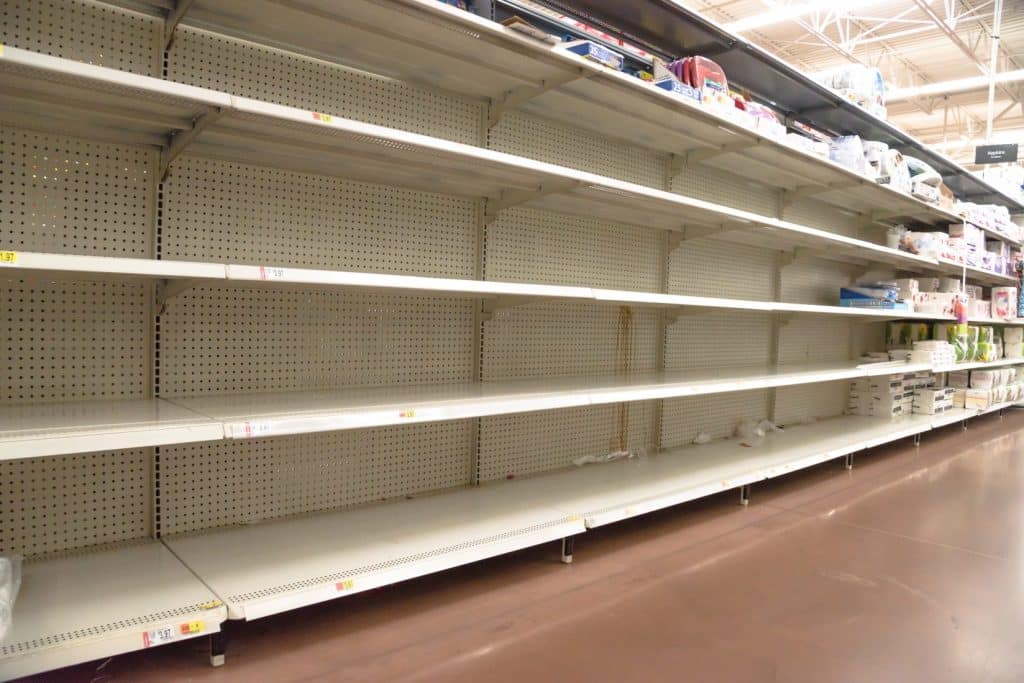
As the strike drags on, the critical question becomes: how long can the ports remain idle before economic chaos ensues? Despite its current reluctance, the Biden administration may eventually have no choice but to step in if the strike significantly disrupts supply chains and drives up consumer prices. Businesses, particularly those in the retail and manufacturing sectors, are already bracing for potential fallout, and any prolonged disruption could force them to seek costly alternatives such as air freight or alternate shipping routes.
Yet, even as the economic impacts of the strike become more apparent, the public’s perception of the dockworkers’ cause could shift. Initially, many Americans may sympathize with the dockworkers’ demands for fair wages and job security, particularly in the face of soaring corporate profits and rising inflation. However, as shortages become more acute and prices for everyday goods rise, public support for the strike could wane.
Ultimately, the outcome of this strike will depend on several key factors: the resilience of the U.S. economy, the willingness of both sides to return to the negotiating table, and the political calculations made by the Biden administration. Whatever happens, this labor action will likely set the tone for future labor relations in the U.S., particularly as industries grapple with the challenges posed by automation and global supply chains.
A Pivotal Moment for U.S. Labor Relations
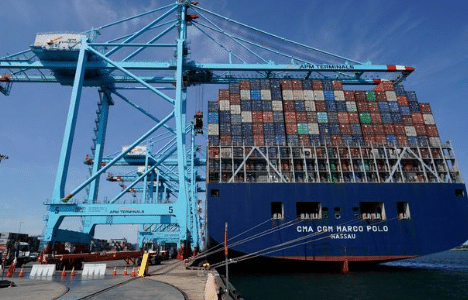
The dockworkers’ strike across major U.S. ports is not just a labor dispute; it’s a microcosm of the more significant issues facing American workers today. As the strike continues, the country will watch closely to see how it unfolds, knowing that the outcomes could have far-reaching implications for the economy, labor relations, and the nation’s political future. Whether or not a resolution is reached soon, this moment will undoubtedly be remembered as a turning point in the ongoing struggle between workers, employers, and the forces shaping the modern economy.
Author

Morris Wambua is a freelance writer with a medical background and a dynamic understanding of sociology, politics, and spirituality. Known for his unapologetic Christian perspective, Morris has earned national recognition for his essay writing, including top honors in human rights competitions organized by Amnesty International Kenya. His writing blends his expertise in medicine with a profound insight into societal issues, offering thought-provoking and faith-driven perspectives.
View all posts Staff Writer
Pages: 1 2



